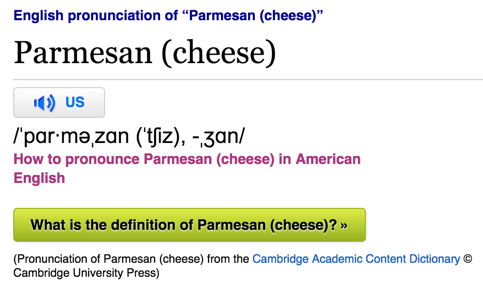Marriage O'Quality
Tweeted by Graeme Orr:
Marriage O'Quality. Comhghairdeas Éire! #marriageeqaulity
— Graeme Orr (@Graeme_Orr) May 23, 2015
Read the rest of this entry »
Tweeted by Graeme Orr:
Marriage O'Quality. Comhghairdeas Éire! #marriageeqaulity
— Graeme Orr (@Graeme_Orr) May 23, 2015
Read the rest of this entry »
A couple of days ago, I gave a talk at the Centre Cournot on the topic "Why Human Language Technology (almost) works" ("Pourquoi les technologies de la langue et du discours marchent enfin (ou presque)"), and for the introduction, I tried giving Google Now a few questions and instructions on my Android phone.
In case you're not familiar with this feature, you start it up by saying "OK Google", followed by the question you want it to answer or the instruction you want it to follow.
And since the starting-point of my talk was that HLT now actually works well enough to be useful, I was glad to see that my little experiment worked pretty well.
Read the rest of this entry »
Tom Hancock sent in this photograph of a poster seen yesterday outside a Shaanxi restaurant just inside Beijing's third ring road:
Read the rest of this entry »
Emily Cahn, "Sanchez Stumbles Prompt SoCal Angst", Roll Call 5/20/2015 — Linda Seebach writes "I lived in LA for a couple of years, and can readily believe that SoCal angst is unusually prompt to appear."
Read the rest of this entry »
"Beautiful Illustrations of Words with No English Equivalent",Twisted Sifter 5/16/2015.
As usual, many of the translations seem to be somewhat more specifically evocative than the words they translate.
Thus Spanish duende is rendered as "The mysterious power that a work of art has to deeply move a person", whereas the WordReference dictionary gives simply "spirit, magical creature; elf, imp, goblin; magic, charm", and the Collins dictionary gives "goblin, elf; imp; magic; gremlin".
Read the rest of this entry »
Melissa Holbrook Pierson, "What Is Your Dog Telling You? They may not use words, but dogs say a lot more than we realize with their body language", WSJ 5/11/2015:
For the same reason that Eskimos purportedly have 50 different words for snow, dogs have a vast repertoire of gestures for appeasement and propitiation. The Norwegian dog trainer Turid Rugaas has identified some 30 “calming signals”—movements offered to deflect trouble (which may also relieve stress in both giver and receiver). Supremely subtle, sometimes so quick we don’t notice them, these appeasing signals include a flick of the tongue; turning the head or gaze away; suddenly sniffing the ground or sitting; yawning; shaking off; or approaching on a curve.
[h/t Amanda Seidl, who is planning on getting a dog]
I recently learned that Adam Kilgarriff died on Saturday May 16.
The weblog-journal that he maintained since his cancer diagnosis last fall gives a sense of the kind of person he was. The links on his homepage will tell you more about his work as a linguist, from his insights about word meaning (e.g. "I don't believe in word senses", Computers and the Humanities 1997), to his creation of the Sketch Engine, an interactive online system that "lets you see a concordance for any word, phrase or grammatical construction, in one of the corpora that we provide, or in a corpus of your own", and also provides "word sketches, one-page, automatic, corpus-derived summaries of a word's grammatical and collocational behaviour".
The Cambridge Dictionaries Online entry for the pronunciation of parmesan (cheese) in American English is a fine example of broad-transcription IPA style:

But the button labelled with an audio icon and a blue "US" leads to
http://dictionary.cambridge.org/us/media/american-english/us_pron/u/usb/usb02/usb02227.mp3
which is an interesting surprise:
Audio clip: Adobe Flash Player (version 9 or above) is required to play this audio clip. Download the latest version here. You also need to have JavaScript enabled in your browser.
Read the rest of this entry »
The following article by Danny Mok appeared in today's South China Morning Post:
"Police? Jing Cha? Altered helmet may spell 'trouble' for city policeman" (5/19/15)
The article commenced with this photograph:
Read the rest of this entry »
A headline writer is apparently economizing on punctuation: Nomaan Merchant, "Police: 9 dead in Texas shooting all members of biker gangs", MyFoxDetroit (AP).
Read the rest of this entry »
John Gertner, "‘Elon Musk,’ by Ashlee Vance", NYT /17/2015:
He is now, quite arguably, the most successful and important entrepreneur in the world.
Matt Hutson writes:
“Arguably” is often used to temper an argument, so “quite arguably” should temper it even more. But here “quite” has the effect of strengthening the argument rather than strengthening the tempering of the argument. Seemingly paradoxically, “quite arguably” approaches the meaning of “inarguably.” In essence, by adding “quite,” we suddenly see a proposition’s being arguable in contrast to its being untenable, rather than in contrast to its being undeniable. A neat sleight of word!
Read the rest of this entry »
Guy Freeman sent in this photograph of a beer advertisement in Hong Kong:
Read the rest of this entry »